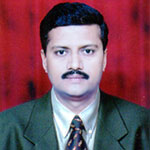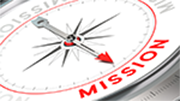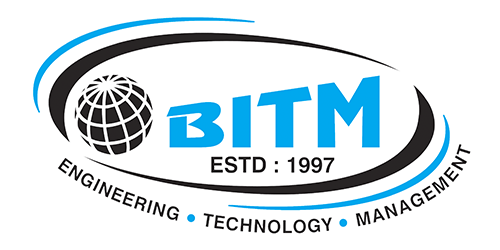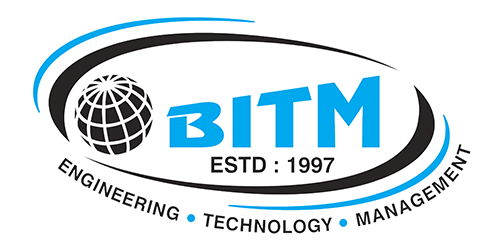
COMPUTER SCIENCE & ENGINEERING (DATA SCIENCE)
Course Duration: 4 Years | Semesters: 8 |
About the Department
Data science is a big deal in computer science right now. It's not just about analyzing data or writing code. Data scientists have to be good at coding and understanding statistics to work with data from different areas. They use skills like machine learning, stats, and visualization to make sense of it all. Companies everywhere need people who can handle data well, so being a data scientist is a hot job. It's like a key to getting into the exciting world of big data and machine learning.
Data Science is a part of Computer Science, and it's becoming more and more important for solving complex problems with technology. Nowadays, there's a lot of data being generated across different areas, and much of it is unorganized. That's why it's crucial to teach students how to analyze this data and draw smart conclusions from it. To meet this need, the Computer Science and Engineering Department (focused on Data Science) was started in 2021-22. Currently, the department accepts 120 new students each year. We have really good teachers from top colleges in India, and our facilities are top-notch. This creates a great environment for students to become skilled data engineers and scientists.
- The Department strives to create a vibrant knowledge base environment in the department to empower students with professional & personal excellence.
- The faculty members are young, dynamic, energetic, and highly qualified to meet the requirements based on the current knowledge of the students.
- The department has professional excellence in advanced technologies and research.
- The department motivates the students to create innovative and novel ideas and transforms these ideas into the technological requirements of the industry.
- The department encourages the students to improve their communication skills, and presentation skills and gain confidence. The department conducts regular seminars & workshops in association with industry to equip the students with practical insight and help the students to incorporate these technologies into their specializations.
- The Department has a Student Forum called C.O.D.E (clubs of Data Engineers) which encourages the students to take up innovative activities under the clubs (Technical Clubs, Research and Innovation Clubs, Cultural clubs, Magazine Club etc) and mini projects as a part of the fulfillment of the curriculum and also extracurricular activities.

Dr. Aradhana D
Prof. & HOD
Department of CSE - Data Science
Welcome students,
The Department of Computer Science and Engineering - Data Science (CSE-DS) offers a 4-year undergraduate program. It's considered one of the best branches in the field of technology under CSE. This program opens up a wide range of job opportunities in various fields. Data science is a top branch of computer science, and it's growing fast. It's one of the most popular career paths in the tech world right now.
About the Department
The Department of Computer Science and Engineering - Data Science was founded in the academic year 2021-22. Since then, it has flourished, boasting a team of highly qualified and dedicated faculty members. The department has evolved from its modest origins to become fully operational, with state-of-the-art laboratories and infrastructure in place. It encourages collaboration among faculty members, enabling them to stay updated with the latest advancements and refine their skills to meet the needs of industry and technology.
The students are encouraged:
- The department encourages students to engage in various activities such as seminars, technical fests, symposiums, and conferences organized by other engineering colleges.
- Additionally, Institution has established Memorandums of Understanding (MoUs) with reputable industries.
- Students are also motivated to enhance their communication and presentation skills, fostering confidence.
- Regular seminars and workshops are conducted in collaboration with industry partners, providing students with practical insights and enabling them to integrate emerging technologies into their areas of specialization.
Wishing you all the best
VISION AND MISSION OF THE DEPARTMENT

Vision:
To contribute AI experts for global industries and organizations, fostering innovation while upholding social responsibility and ethical practices.

Mission:
M1: To Empower students with innovative and cognitive skills to excel in the field of Data Science.
M2: To Provide exceptional infrastructure, facilities, and ambiance for the nurturing of young professional.
M3: To Cultivate knowledge through an industry-friendly environment, enabling excellence and research in a data-driven world.
PEOs:
- Graduates will garner peer recognition, either individually or as part of a team, for their specialized knowledge and expertise in data analysis, statistical inference, data mining, and problem-solving within the global data analytics industry.
- Graduates will demonstrate leadership qualities, capable of navigating diverse circumstances and environments, fostering multidisciplinary collaboration to address complex challenges effectively.
- Graduates will exhibit a commitment to lifelong learning, embracing new skills and techniques to tackle emerging challenges posed by evolving technologies in the field of data science.
PROGRAMME OUTCOMES (PO’s):
Engineering Graduates will be able to:
- Engineering knowledge: Apply the knowledge of mathematics, science, engineering fundamentals, and an engineering specialization to the solution of complex engineering problems.
- Problem analysis: Identify, formulate, review research literature, and analyze complex engineering problems reaching substantiated conclusions using first principles of mathematics, natural sciences, and engineering sciences.
- Design/development of solutions: Design solutions for complex engineering problems and design system components or processes that meet the specified needs with appropriate consideration for the public health and safety, and the cultural, societal, and environmental considerations.
- Conduct investigations of complex problems: Use research-based knowledge and research methods including design of experiments, analysis and interpretation of data, and synthesis of the information to provide valid conclusions.
- Modern tool usage: Create, select, and apply appropriate techniques, resources, and modern engineering and IT tools including prediction and modeling to complex engineering activities with an understanding of the limitations.
- The engineer and society: Apply reasoning informed by the contextual knowledge to assess societal, health, safety, legal and cultural issues and the consequent responsibilities relevant to the professional engineering practice.
- Environment and sustainability: Understand the impact of the professional engineering solutions in societal and environmental contexts, and demonstrate the knowledge of, and need for sustainable development.
- Ethics: Apply ethical principles and commit to professional ethics and responsibilities and norms of the engineering practice.
- Individual and team work: Function effectively as an individual, and as a member or leader in diverse teams, and in multidisciplinary settings.
- Communication: Communicate effectively on complex engineering activities with the engineering community and with society at large, such as, being able to comprehend and write effective reports and design documentation, make effective presentations, and give and receive clear instructions.
- Project management and finance: Demonstrate knowledge and understanding of the engineering and management principles and apply these to one’s own work, as a member and leader in a team, to manage projects and in multidisciplinary environments.
- Life-long learning: Recognize the need for, and have the preparation and ability to engage in independent and life-long learning in the broadest context of technological change.
| Ballari Institute of Technology & Management, Ballari | |||
| Department of Computer Science and Engg. ( DATA SCIENCE) | |||
| Course Outcomes (COs) | |||
| Course code | Course Name | CO-numbering | Statement |
| 22CD32 | DIGITAL SYSTEM DESIGN AND COMPUTER ORGANIZATION
|
C302.1 | Illustrate different simplifying techniques in the design of combinational circuits. |
| C302.2 | Design various combinational and sequential digital circuits. | ||
| C302.3 | Design various counters using Flip-Flops. | ||
| C302.4 | Demonstrate the fundamentals of computer organization with machine instructions. | ||
| C302.5 | Elaborate the communication of input/output devices with computer system and solve arithmetic Operations using various techniques. | ||
| 22CD33 | OPERATING SYSTEM
|
C303.1 | To introduce operating system, OS responsibilities, and OS services. |
| C303.2 | To discuss process concept, process scheduling techniques, and multi-threading concepts. | ||
| C303.3 | To demonstrate deadlock condition in the computer system, and usage of main memory. | ||
| C303.4 | To introduce virtual memory management concepts and file system. | ||
| C303.5 | To explain about secondary storage system and Linux OS as a case study. | ||
| 22CD34 | DATA STRUCTURES AND APPLICATIONS
|
C304.1 | Explain the fundamentals of data structures and their applications to solve real life problems. |
| C304.2 | Demonstrate the working of linear and nonlinear data structures. | ||
| C304.3 | Write solutions to problems using linear data structures and nonlinear data structures. | ||
| C304.4 | Apply different data structures to solve given problem. | ||
| C304.5 | Develop skills to apply appropriate data structures in problem solving | ||
| 22CDL35 | DATA STRUCTURES AND APPLICATIONS LAB
|
C305.1 | Illustrate implementation of basic operations on data structures. |
| C305.2 | Interpret Applications of different data structures. | ||
| C305.3 | Demonstrate data structures and their variants. | ||
| C305.4 | Illustrate various searching techniques using trees and graphs. | ||
| C305.5 | Develop skills to identify appropriate data structures to solve a given problem. | ||
| 22CD36 | OBJECT ORIENTED PROGRAMMING WITH JAVA | C306.1 | Learn fundamental features of object-oriented language and JAVA. |
| C306.2 | Learn object-oriented concepts using programming examples. | ||
| C306.3 | Study the concepts of importing packages, exception handling mechanism and multi threading. | ||
| C306.4 | Introduce event handling mechanism. | ||
| C306.5 | Create Graphical User Interface (GUI) applications using swings. | ||
| 22CD383 | R Programming
|
C308.1 | Explore and understand how R and R Studio interactive environment. |
| C308.2 | To learn and practice programming techniques using R programming. | ||
| C308.3 | Read Structured Data into R from various sources. | ||
| C308.4 | Understand the different data Structures, data types in R. | ||
| C308.5 | To develop small applications using R Programming. | ||
| 22CD42 | INTRODUCTION TO DATA SCIENCE
|
C402.1 | Demonstrate the proficiency with statistical analysis of data to derive insight from results and interpret the data findings visually. |
| C402.2 | Utilize the skills in data management by obtaining, cleaning and transforming the data. | ||
| C402.3 | Make use of machine learning models to solve the business-related challenges | ||
| C402.4 | Experiment with decision trees, neural network layers and data partition. | ||
| C402.5 | Demonstrate how social clustering shape individuals and groups in contemporary society. | ||
| 22CD43 | DATABASE MANAGEMENT SYSTEMS | C403.1 | Learn and practice data modeling using entity relationship and developing database design |
| C403.2 | Practice SQL programming through a variety of database problems. | ||
| C403.3 | Apply normalization techniques to normalize the database | ||
| C403.4 | Demonstrate the use of concurrency and transactions in database | ||
| C403.5 | Design and build database applications for real world problems. | ||
| 22CD44 | ANALYSIS AND DESIGN OF ALGORITHMS | C404.1 | Describe basic concepts, notations, methods used in design and analysis of algorithms |
| C404.2 | Explain various algorithm design techniques. | ||
| C404.3 | Design and analyze the efficiency of a given problem using various design techniques. | ||
| C404.4 | Differentiate efficiency of different algorithm design techniques for a given problem. | ||
| C404.5 | Apply the suitable algorithm design technique for a given problem | ||
| 22CDL45 | ALGORITHMS LAB | C405.1 | Demonstrate the basiCD concepts of Java Programming. |
| C405.2 | Illustrate Different Sorting Algorithm design techniques. | ||
| C405.3 | Solve Graph Applications using various design techniques. | ||
| C405.4 | Interpret combinatorial problems using Backtracking technique. | ||
| C405.5 | Develop skills to identify suitable algorithm design technique to solve a given problem | ||
| 22CD463 | INTRODUCTION TO DATA ANALYTICD | C406.1 | To learn various concepts and technologies of Data Analytics |
| C406.2 | To discuss the various OLTP system characteristics | ||
| C406.3 | To discuss the various aspects related to the Data lake and Data warehouse | ||
| C406.4 | To present the data using various Visualization tools | ||
| S. No | Name | Designation | Qualification | Experience (In Years) |
| 1 | Dr. Aradhana D | Professor - HOD | BE(CSE), M.Tech(CSE), PhD | 27 |
| 2 | Dr. Jagadhish R M | Assoc. Prof | BE(CSE), M.Tech(CNE), PhD | 16 |
| 3 | Mr. Manjunath Kammar | Assistant Professor | BE(CSE), M.Tech(CSE) | 15 |
| 4 | Ms. Parvati | Assistant Professor | BE(CSE), M.Tech | 04 |
| 5 | Ms. Uma Devi B E | Assistant Professor | BE(CSE), M.Tech(CSE) | 02 |
| 6 | Ms. Archana Budagavi | Assistant Professor | BE(ECE), M.Tech (VLSI&Embedded) | 01 |
| 7 | Ms. Anushya | Assistant Professor | BE(ECE), M.Tech (VLSI&Embedded) | 01 |
| 8 | Ms. Kamalapadu Varsha | Teaching Assistant | BE(CSE) | -- |
| S. No | Name | Designation | Qualification |
| 1 | Ramanjineyalu | Instructor | BCA |
| Name Of The Lab | CSE-DS |
| Size in Square Meters | 181.18 |
| No. Of. Computer System | 70 |
| Configuration | Dell Optiplex 3050 CPU, Core 15-7th Gen Processor, 16GB RAM, 512 SSD, 22 Inch Dell Moniotor Keyboard & Mouse. |
| Lab Manual | Yes |
| Lab Instructor | Ramanjineyalu |
| Staff In Charge | Mr.Manjunath Kammar |
1. Launching Club Initiatives:
Initiate various club activities within the department to foster a sense of community and engagement among faculty and students.
2. NPTEL Swayam Course Requirement for Faculty:
Mandate that each faculty member completes a course in NPTEL Swayam to enhance their knowledge and skills in relevant areas.
3. Conducting SDP/FDP on Generative Al:
Organize Skill Development Programs (SDP) or Faculty Development Programs (FDP) focused on Generative Al to promote advanced learning within the department.
4. Encouraging Research Publication:
Inspire faculty members to contribute to the academic community by encouraging the publication of at least one research paper in recognized platforms such as Scopus or Web of Science.
5. Promoting Online Learning for Students:
Motivate students to enroll in additional online courses offered by Infosys Spring Board and NPTEL to complement their academic curriculum and enhance their skills.
Lab Photo:
BALLARI INSTITUTE OF TECHNOLOGY & MANAGEMENT, BALLARI
2nd Year (3 rd Sem.) Students List for the AY 2023-24 as on 19/10/2023
BRANCH: CSE - DS
| S.N. | T-USN | NAME OF THE
STUDENT |
||
| 1 | 3BR22CD001 | ADITHI TATAMPU2DI | ||
| 2 | 3BR22CD002 | ALIYA M | ||
| 3 | 3BR22CD003 | AMRUTHA V | ||
| 4 | 3BR22CD004 | BONAM PARDHU | ||
| 5 | 3BR22CD005 | C M ABHISHEK | ||
| 6 | 3BR22CD006 | CHANNAVEERESHA
METI |
||
| 7 | 3BR22CD007 | CHETANA H K | ||
| 8 | 3BR22CD008 | CHINTAKUNTA MATAM
PRIYANKA |
||
| 9 | 3BR22CD009 | CHITHRA B | ||
| 10 | 3BR22CD010 | D NIKHIL | ||
| 11 | 3BR22CD011 | DARSHAN M | ||
| 12 | 3BR22CD012 | DODAGATTA MAHESH | ||
| 13 | 3BR22CD013 | G GUNASHREE | ||
| 14 | 3BR22CD014 | G HARSHINI | ||
| 15 | 3BR22CD015 | G MEGHANA
CHOWDARY |
||
| 16 | 3BR22CD016 | G USHA | ||
| 17 | 3BR22CD017 | GHANTA POOJITH
BALU |
||
| 18 | 3BR22CD018 | GOKUL P R | ||
| 19 | 3BR22CD019 | GOUTHAM M | ||
| 20 | 3BR22CD020 | INDU H | ||
| 21 | 3BR22CD021 | K LAVANYA | ||
| 22 | 3BR22CD022 | K ROOPA SREE | ||
| 23 | 3BR22CD023 | K SHASHIKALA | ||
| 24 | 3BR22CD024 | K SHIVA SHANKAR
PRASAD |
||
| 25 | 3BR22CD025 | KANNARI GOUTHAMI | ||
| 26 | 3BR22CD026 | KARTHIK B N | ||
| 27 | 3BR22CD027 | KAVYA R RATHOD | ||
| 28 | 3BR22CD028 | KISHORE BABU S | ||
| 29 | 3BR22CD029 | KRISHNAGIRI
MRUTHYUNJAYA |
||
| 30 | 3BR22CD030 | M N NIHARIKA SHREE | ||
| 31 | 3BR22CD031 | M SREE VARDHINI | ||
| 32 | 3BR22CD032 | MALLIKARJUN
KALLAPPA POOJARI |
||
| 33 | 3BR22CD033 | MOHAMMED KAIF G | ||
| 34 | 3BR22CD034 | MOHAMMED MOIN
KHAN S |
||
| 35 | 3BR22CD035 | MOHAMMED
MOINUDDIN |
||
| 36 | 3BR22CD036 | MOHAMMED SAROSH
KHAN |
||
| 37 | 3BR22CD037 | MOHAMMED TAHIR | ||
| 38 | 3BR22CD038 | MOOLI SRUTHI | ||
| 39 | 3BR22CD039 | MOUNIKA M | ||
| 40 | 3BR22CD040 | N RAKSHA | ||
| 41 | 3BR22CD041 | NITESH KUMAR | ||
| 42 | 3BR22CD042 | PALLAVI R | ||
| 43 | 3BR22CD043 | POORVI V MALLAPUR | ||
| 44 | 3BR22CD044 | PRAGNA KAKANDAKI | ||
| 45 | 3BR22CD045 | PRANAV K P | ||
| 46 | 3BR22CD046 | PUSHPITHA J R | ||
| 47 | 3BR22CD047 | R C SHWETHA | ||
| 48 | 3BR22CD048 | R ROHIT SAI | ||
| 49 | 3BR22CD049 | R SHREYANK | ||
| 50 | 3BR22CD050 | RAKSHITHA | ||
| 51 | 3BR22CD051 | RAKSHITHA ATTI | ||
| 52 | 3BR22CD052 | REVANASIDDAPPA | ||
| 53 | 3BR22CD053 | S MEGHANA | ||
| 54 | 3BR22CD054 | S MOUNIKA | ||
| 55 | 3BR22CD055 | S VARSHINI BHAT | ||
| 56 | 3BR22CD056 | SAI HARSHITHA I | ||
| 57 | 3BR22CD057 | SAI KIRAN G H | ||
| 58 | 3BR22CD058 | SAMIUN HANI | ||
| 59 | 3BR22CD059 | SYED SHOAIB | ||
| 60 | 3BR22CD060 | SYEDA KANEES
FATHIMA |
||
| 61 | 3BR22CD061 | TANGUTURI SREENIVAS | ||
| 62 | 3BR22CD062 | THIMMALAPURAM
SANJANA |
||
| 63 | 3BR22CD063 | YADAVALLI VARUN | ||
| 64 | 22BI23DS401-T | V MADHU KUMAR | ||
| 65 | 22BI23DS402-T | ANMOL TIWARI | ||
| 66 | 22BI23DS403-T | MOHAMMED MUZAKKIR | ||
| 67 | 22BI23DS404-T | PUPPALA TEJA SRI | ||
| 68 | 22BI23DS405-T | SOUNDARYA A | ||
Click To View : Modal Question Paper
Department of CSE- Data Science
DS Forum C.O.D.E- Clubs of Data Engineers
DS Forum Student Inauguration
The Department of CS- Data Science has organized "DS Forum Student Inauguration" on February 05th at Lab1, 3rd Floor, Silver Jubilee, BITM, Ballari.
Miss. Niharika student of 3rd Semester welcomed Director, Principal, Head of the Department, staff members and students. The event was inaugurated by Prof. Prithviraj Bhupal Director BITM Ballari and Head of the Department Dr. Aradhana D, DS Forum Staff Coordinator Mr. Manjunath Kammar, Dr. Jagadish R.M, Miss. Umadevi B E and Miss. Archana and students oordinators.
Director Prof. Prithviraj Bhupal sir addressed the gathering with a warm welcome and followed an overview of the Institute Vision, Mission and Department goals. He also briefed about the importance and opportunities of Data Science branch, trainings, placements records of the institute etc.
Head of the Department, Dr. Aradhana D. addressed the gathering with a warm welcome and appreciation of events conducted in the department, followed by an overview of the department the objectives and events planned for academic year 2024-25. She also briefed about the efforts taken by the department for the technical as well as the overall development of students. She also briefed about Road Map for activities and challenges & opportunities in Data Science.
Parent-Teacher Meeting
A Parent-Teacher Meeting took place on February 3, 2024, from 2:00 PM to 4:30 PM in LAB1, Silver Jubilee Block. Prior notification was sent to parents through official student groups, followed by individual phone calls facilitated by class teachers and mentors well in advance. Additionally, a WhatsApp group was created to inform all parents, and invitation cards were distributed.
Objectives:
• Share academic progress and growth through classroom observations, testing data, assessments, portfolios, and assignments.
• Foster a better understanding between parents and teachers, as well as a harmonious relationship between the institute and the community.
• Assist parents and students in adapting to the evolving concepts of society.
• Communicate academic progress and growth based on classroom observations, assessments, portfolios, and assignments.
• Gain insight from parents or guardians to better understand students' strengths, needs, performances, and learning styles.
Event on “Coding and Debugging”
Event on “Coding and Debugging” conducted on 31/01/2024 by the Data Science Student Forum, Department of CS – Data Science at Lab1, 3rd Floor, Silver Jubilee Block.
The event was inaugurated by Dr. Aradhana D. Head of the department. DS – Forum Coordinator Mr. Manjunath Kammar and staff members. The event coordinators are Niharika Shree, Sree Vardhani, Harishita and Sruthi 3rd Semester Data Science..
Coding and Debugging event is a Quiz Competition on Programming Language which contains 3 rounds. Every round students evaluated based on their performance and shorted listed the participants. Final Round winners are Poorvi,Sai Kiran and Varshin.
Workshop on “Web Development”
Value Added workshop on “Web Development” conducted on 31/01/2024 by the Data Science Student Forum, Department of CS – Data Science at Lab1, 3rd Floor, Silver Jubilee Block.
The event was inaugurated by Dr. Aradhana D. Head of the department. DS – Forum Coordinator Mr. Manjunath Kammar and staff members. The event coordinators are Mohammed Kaif, Syeda Kanees Fathima, K. Roopa Shree, S . Mounika, K . Lavanya, T . Sanjana, Meghana and Pragna 3rd Semester Data Science.
The Web Development Workshop is a learning event designed to give individuals an introduction to the basics of web development. During the workshop, attendees will learn the fundamentals of HTML, CSS, and JavaScript, as well as the basics of web design and development. Students covered various topics of Web Technology, conducted practical session and also demonstrated creation of web pages.
Head of the department distributed the letter of appreciations to the student coordinators with vote of thanks.
CSE-DS Student Forum Activities
Quick Links
Contact us
Office: 08392-237192
Mobile: +91 94485-72340
Mail ID: rnkulkarni@localhost
Mail ID:rn_kulkarni@rediffmail.com
 Ranked #15
Ranked #15
Ranked as 15th Best Engineering College in Karnataka by Edu-Rand Magazine Engineering College Raknking 2015
ACCREDITATION
![]()
 Ranked #6
Ranked #6
Ranked 6th in Top 10 Private Colleges in Karnataka (https://pickacollege.digit.in/)

